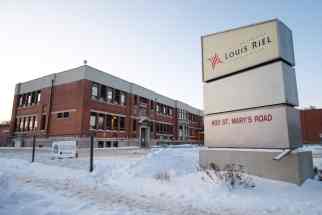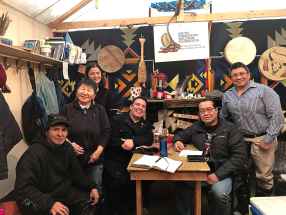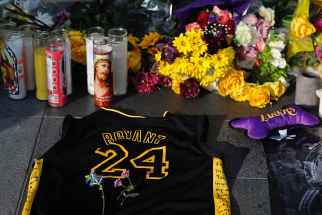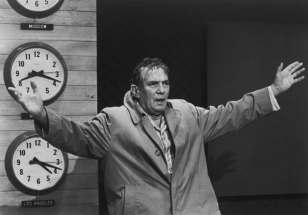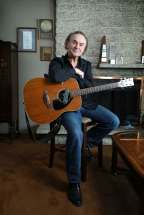Traditional camp offers breakfast and hope
Read this article for free:
or
Already have an account? Log in here »
To continue reading, please subscribe:
Monthly Digital Subscription
$0 for the first 4 weeks*
- Enjoy unlimited reading on winnipegfreepress.com
- Read the E-Edition, our digital replica newspaper
- Access News Break, our award-winning app
- Play interactive puzzles
*No charge for 4 weeks then price increases to the regular rate of $19.00 plus GST every four weeks. Offer available to new and qualified returning subscribers only. Cancel any time.
Monthly Digital Subscription
$4.75/week*
- Enjoy unlimited reading on winnipegfreepress.com
- Read the E-Edition, our digital replica newspaper
- Access News Break, our award-winning app
- Play interactive puzzles
*Billed as $19 plus GST every four weeks. Cancel any time.
To continue reading, please subscribe:
Add Free Press access to your Brandon Sun subscription for only an additional
$1 for the first 4 weeks*
*Your next subscription payment will increase by $1.00 and you will be charged $16.99 plus GST for four weeks. After four weeks, your payment will increase to $23.99 plus GST every four weeks.
Read unlimited articles for free today:
or
Already have an account? Log in here »
Hey there, time traveller!
This article was published 31/01/2020 (2139 days ago), so information in it may no longer be current.
YELLOWKNIFE, N.W.T. — It’s 6:30 a.m. (and minus 30C). Time for breakfast.
It’s pretty good. Eggs, bacon, beans and coffee – all cooked over an open fire.
Outside.
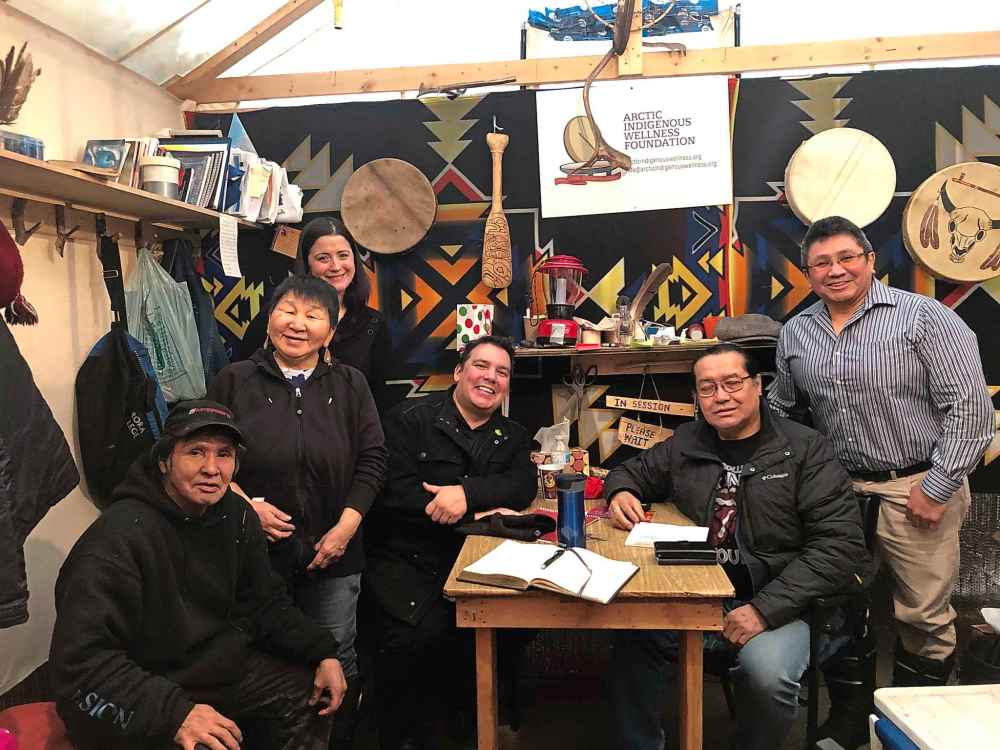
“This is the best breakfast in the city,” Olive (not her real name) tells me. Olive has experienced homelessness for six months. “My time out here keeps me warm all day,” she says, with a smile.
Every morning for almost two years, the Arctic Indigenous Wellness Foundation (AIWF) holds two free breakfasts in a traditional camp five minutes from downtown.
The program runs a free shuttle at 7 and 8 a.m., with seats always filled. Clients who miss the ride can also come (and many do) but must walk down Yellowknife’s main street until turning down a path into the woods.
There, behind the Community Recreation Centre, sit four tents, a small shack (covering a fire), and a tipi nestled between snow drifts that are more than a metre high.
“We feed everyone who comes here,” Stanley tells me. Stanley works at the camp after spending years on the streets, struggling with addictions after residential school. Now, he is the first to arrive every morning, lighting the fire and cooking breakfast.
Clients say the food is better and fresher than that served in shelters. It also reminds some of their homes in Tuktoyaktuk and Wekweti, N.W.T.
There’s more than just food at the camp, though. There is a sacred fire, burning from 7 a.m. until the evening. Participants can ask for a smudge, make a tobacco offering, or just sit and reflect.
There is near constant visiting.
If anyone wants, certified Indigenous counsellors and elders on-site are available. Sessions can take place in the traditional tipi or the Inuit- or Dene-centred tents. All are warmed by fires in wood stoves.

Many arrive and stay all day. I plan on visiting for an hour but end up staying for four.
There is more than counselling happening too. While there, I meet a professor from Australia, an elder, an AIWF board member (Stanley’s brother Wilbur), and a social worker.
I am introduced to an instructor from nearby Aurora College, who tells me she brings her students – and that her daughter’s teachers bring them, too.
Everyone is sipping from cups of sweetgrass tea medicine, which is constantly warming on the woodstove. Soon, I get a steaming mug too.
There is always work to do at the camp – chopping wood, cooking food, shovelling snow, or sharing songs and stories.
There are also workshops on drum-making, fasting, and traditional teachings.
“We offer all parts of our culture to support the community,” camp co-founder and traditional counsellor William Greenland tells me. “Some days people want to talk and some days people want to work. It’s all part of learning and growing.”
As Greenland explains, the work at the camp includes caring for the body, heart, and spirit alongside the mind. “I don’t ever ask anyone to come be counselled. When people want to talk, we talk. When it’s time to work, we work.”
Greenland is also a traditional flute player. He shows me his backpack, which holds ten flutes crafted during his time working at the camp.
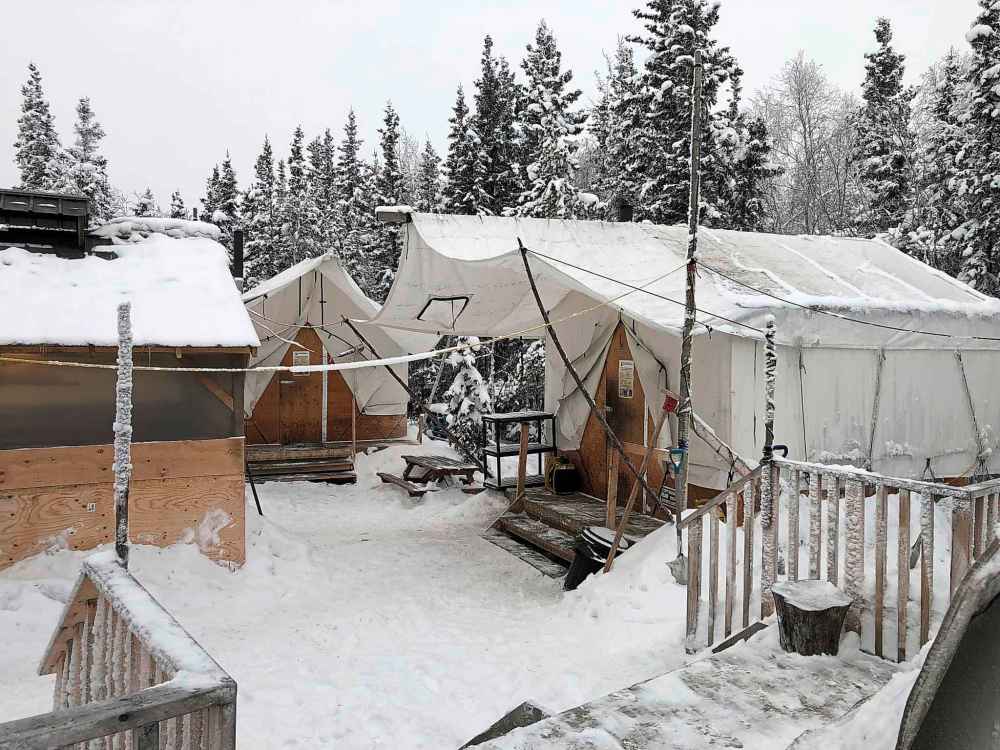
Then, he offers everyone a song.
“That’s amazing, uncle,” Olive tells him.
Greenland tells me that when the camp was first started by elders and Indigenous leaders, local officials tried to stop them. “They threw regulations and rules at us, even while we dug into the snow,” he laughs. “But we let nothing stop us. We built it anyways.”
Now, the camp’s success speaks for itself. Every week, nearly a hundred of the city’s most marginalized come here alongside hundreds of other community members. Most are Indigenous, but not all.
Last year, the city of Yellowknife offered to pay for the breakfast, including the camp in the civic homeless strategy. The camp also has partnered with academics and Indigenous governments (Hotsii ts’eedaa and Tlicho) to research Indigenous trauma and poverty.
The camp runs on a shoestring budget, with most expenses involving gasoline for the generators, food, and salaries. It’s all peanuts compared with most health facilities.
The day I am there, I meet clients with addictions and suicidal thoughts and trauma. Every one of them greet me before I greet them. There is incredible pride everywhere in this place.
One thing hard to ignore is how young residential school survivors are in Yellowknife. Many are my age – from when residential schools closed in the 1990s. So many face hard struggles and have many years ahead. But, they have this place.
In Yellowknife, a small camp is saving lives and building a future.
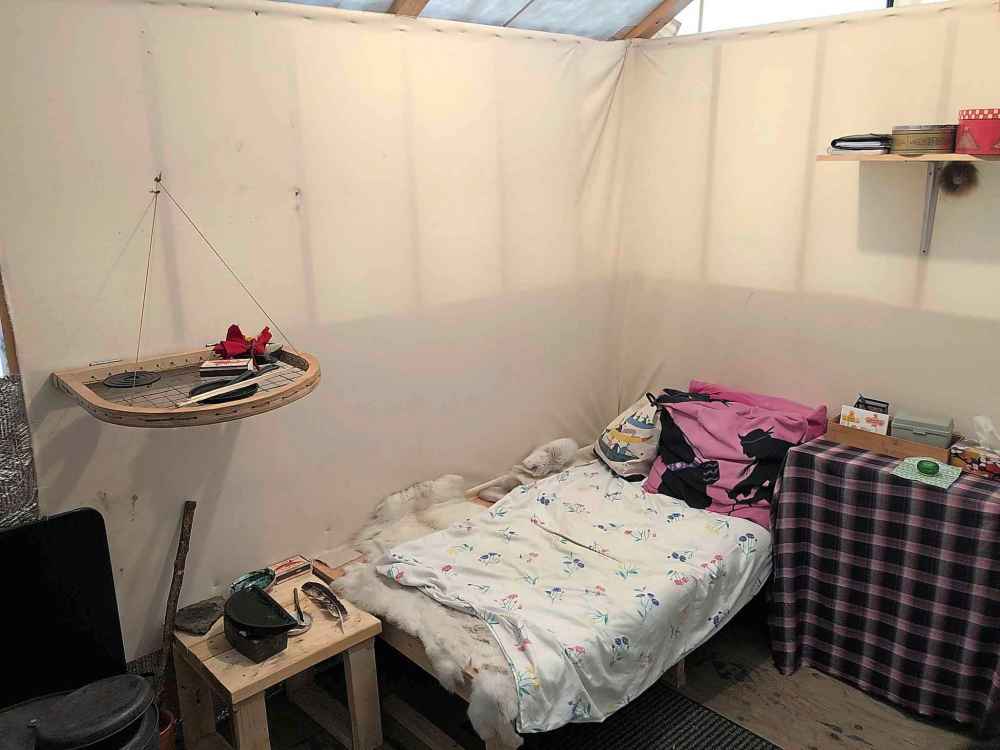
Meanwhile, two weeks ago in Winnipeg — in the middle of a cold snap — city officials bulldozed a camp built by the downtown community. Explaining why, politicians cited regulations and rules and told residents that shelters (temporary or otherwise) were safer, dignified, and better (note: they’re not).
Winnipeg’s “tent city” wasn’t a perfect place, of course, but it had principles of acceptance, warmth, and independence.
Nothing has replaced this since.
I have an idea.
Niigaan Sinclair is Anishinaabe and is a columnist at the Winnipeg Free Press.

Niigaan Sinclair is Anishinaabe and is a columnist at the Winnipeg Free Press.
Our newsroom depends on a growing audience of readers to power our journalism. If you are not a paid reader, please consider becoming a subscriber.
Our newsroom depends on its audience of readers to power our journalism. Thank you for your support.

